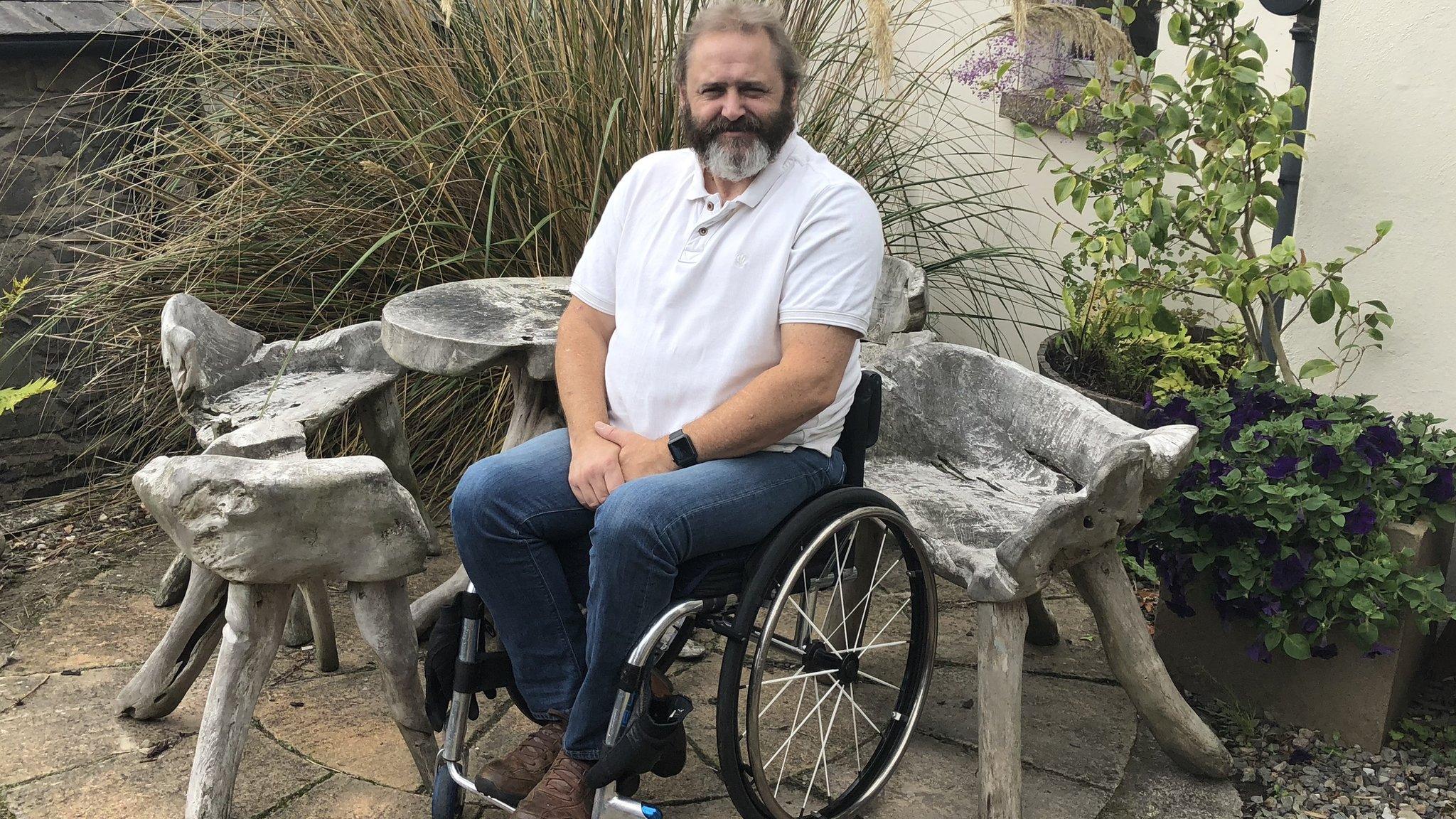Paraplegic man drags himself through airport
- Published
Justin Levene said the airport couldn't provide an adequate wheelchair last August
The image is shocking: Justin Levene, a paraplegic man, dragging himself along the floor through Luton Airport after his self-propelling wheelchair was left behind on a flight.
As he hauls himself through the arrivals hall on his backside, other passengers seem oblivious.
Staff had offered to push him on a rigid high-backed chair but he refused as he felt it removed his independence.
He is now suing Luton Airport - which says it is satisfied with its response.
At the age of 20, Justin, from north London, coughed and herniated a disc. An operation to fix the problem went wrong leaving him paralysed below the waist and reliant on his self-propelling wheelchair.
His disability has not held him back. Far from it.
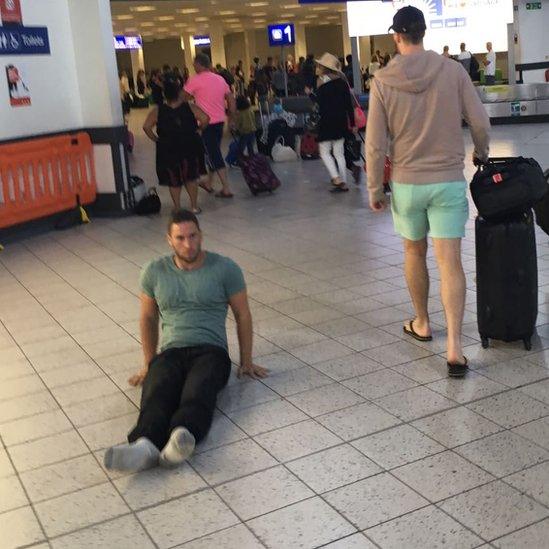
Justin Levene says he had no option but to drag himself through the airport rather than use a chair that needed to be pushed
Almost 10 years on, Justin is an international wheelchair athlete, trainer and mentor to disabled athletes.
He recently worked with orphans and disabled children in Moldova, helping to stage the country's first inclusive marathon.
However, in August 2017 he arrived on a flight to Luton Airport to discover his custom-made, self-propelling wheelchair had been left behind.
At the airport, staff offered to push him through the terminal on a high-backed wheelchair - an option he rejected as degrading.
He asked if he could instead be transported in a motorised buggy. However, Luton does not have one.
'Humiliated and degraded'
Speaking exclusively to the BBC, he said: "I've worked very hard for a number of years to try and maintain all of my independence."
Without his wheelchair he says his self-sufficiency and independence "was no longer there".
"And to be in one of the chairs they were offering would make me feel humiliated and degraded.
"They insisted in trying to strap me down in it.
"I wouldn't have been able to adjust myself, and would have been at risk of getting a pressure sore."
Pressure sores can occur very quickly.
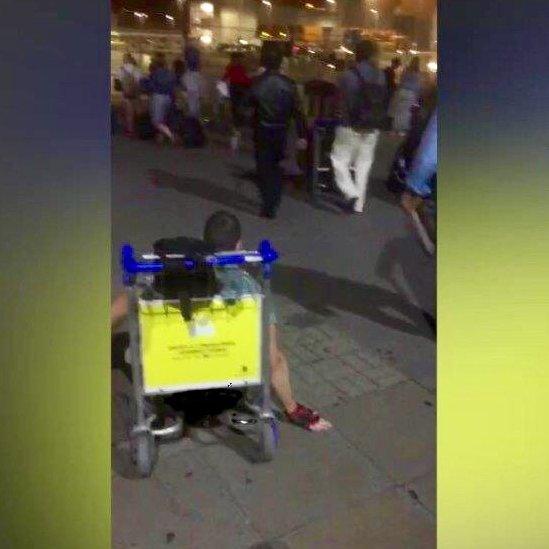
Justin used a luggage trolley to propel himself the final distance to a taxi
Justin says the airport's failure to provide him with either a self-propelling wheelchair or a motorised buggy left him with only one viable option - to drag himself along the floor for hundreds of yards.
When he reached the exit of the terminal, he hauled himself on to a baggage trolley and used his hands to push himself along the ground to his taxi.
Justin's athletics career means he travels widely and he has a custom-made wheelchair with a cushion to reduce pressure sores.
He acknowledges that mistakes do happen, and wheelchairs can be left behind, but he has never faced a situation like this.
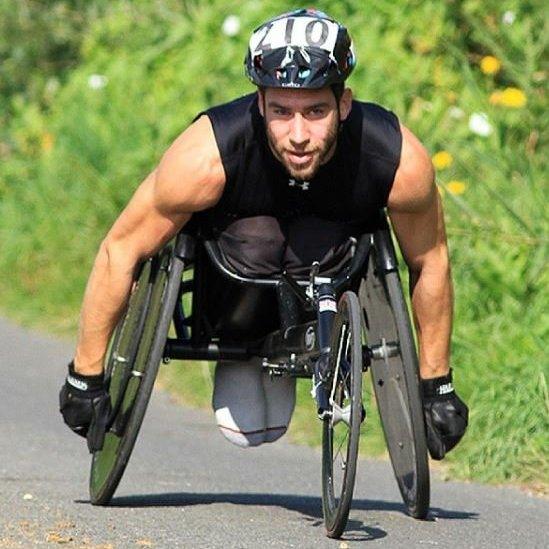
"Every single airport I've been to, no matter where it is, no matter how small the airport may have been, there has always been some form of equipment, whether it has been a self-propelled wheelchair or a buggy," he says.
A significant number of UK and international airports provide self-propelling wheelchairs.
On its website Glasgow Prestwick airport says wheelchairs, including self-propelling ones, are available free of charge to assist you in moving around the airport terminal.
Virgin Atlantic and Virgin Australia specify on their websites that they will provide similar chairs.
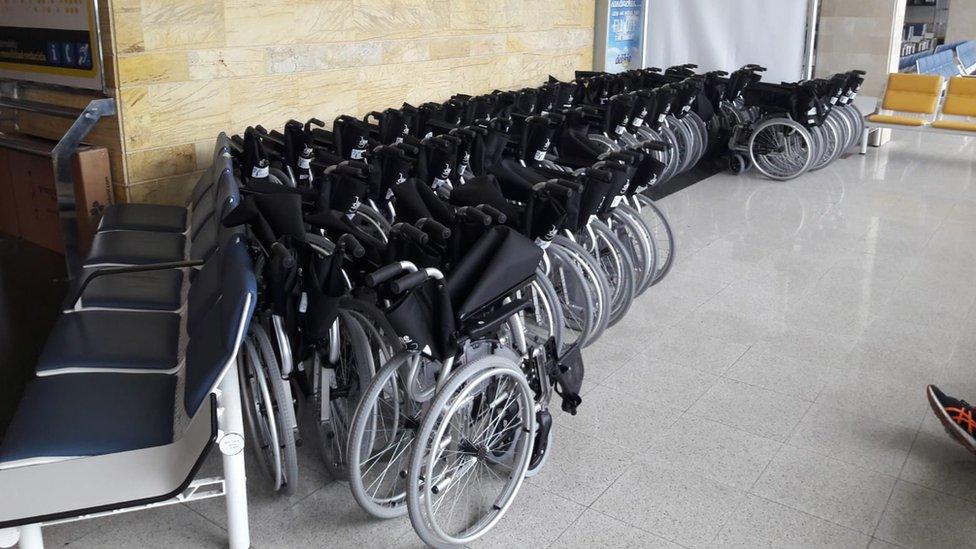
Wheelchairs at Palma Airport Mallorca
Justin is now suing Luton Airport, saying it did not give adequate disability equality and awareness training to those responsible for providing mobility assistance.
In a statement the airport said: "On discovering that Mr Levene's flight had arrived without his wheelchair, our teams worked hard to find a solution, offering Mr Levene an assisted wheelchair as a temporary replacement.
"Mr Levene declined all offers of help as he deemed them unacceptable.
"While we apologise if Mr Levene was dissatisfied with the service he received, we are satisfied that our agents and staff did all they could in difficult circumstances."
'I was angry'
Justin's story is at the cutting edge of society's awareness of disability issues and it poses a critical question: is it sufficient for service providers such as airports to provide some assistance, even if what is provided denies the disabled person their independence?
People will have different views on whether the airport's offer was adequate.
However, Justin says he "felt humiliated".
"I was angry that none of the staff seemed to understand the position or seemed to have any empathy for what was happening."
He says he would like to see greater acknowledgment of the importance of independence for disabled travellers.
"There should be appropriate equipment in every single airport.
"If something does happen, no-one should be put in the position that they are forced to crawl through the airport or drag themselves along the floor.
"And there should be some form of equipment to move themselves independently. Someone whose chair is their legs shouldn't be forced to be reliant on others for help."
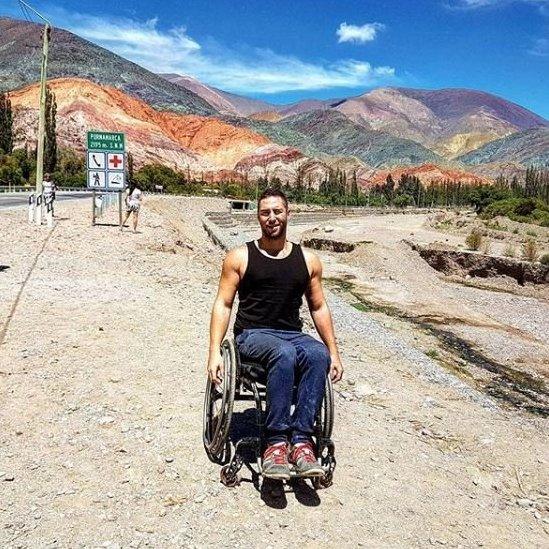
Pictured in Argentina two years ago, Justin is an experienced traveller
Paralympian and campaigner Anne Wafula Strike has also faced problems at airports and on trains - on one occasion suffering the indignity of having to wet herself on a train because the accessible toilet was not working.
She understands why Justin did what he did.
"I would feel like my independence was being taken away and honestly, as a disabled person, we are still in charge of the type of people we want to be.
"Are we the people that just want to be pushed around - for people to be feeling sorry for us? No."
Celebrities who use wheelchairs have tweeted their support for Justin.
Former paralympian Baroness Grey-Thompson wrote, external: "Good for him. I hate being pushed through an airport."
The 11-times gold medal-winner said she had been forced to sit on the floor at airport gates because no wheelchair was available.
And BBC security correspondent Frank Gardner, who has spoken of his experiences being left stranded in airports as a wheelchair user, said the issue was one of "personal dignity".
Allow X content?
This article contains content provided by X. We ask for your permission before anything is loaded, as they may be using cookies and other technologies. You may want to read X’s cookie policy, external and privacy policy, external before accepting. To view this content choose ‘accept and continue’.
Sue Willman, a partner at Justin's solicitors, Deighton Pierce Glynn, says the case "isn't really about money, it's about access to justice".
"It's time for Luton airport and other transport providers to be a bit more imaginative and enable disabled people to travel on equal terms with non-disabled passengers."
Meanwhile, Svetlana Kotova, from the disability equality charity Inclusion London, said it should be possible to provide assistance "in a way that promotes our independence".
"We are customers too and we should be valued and treated with dignity and respect."
- Published24 May 2018
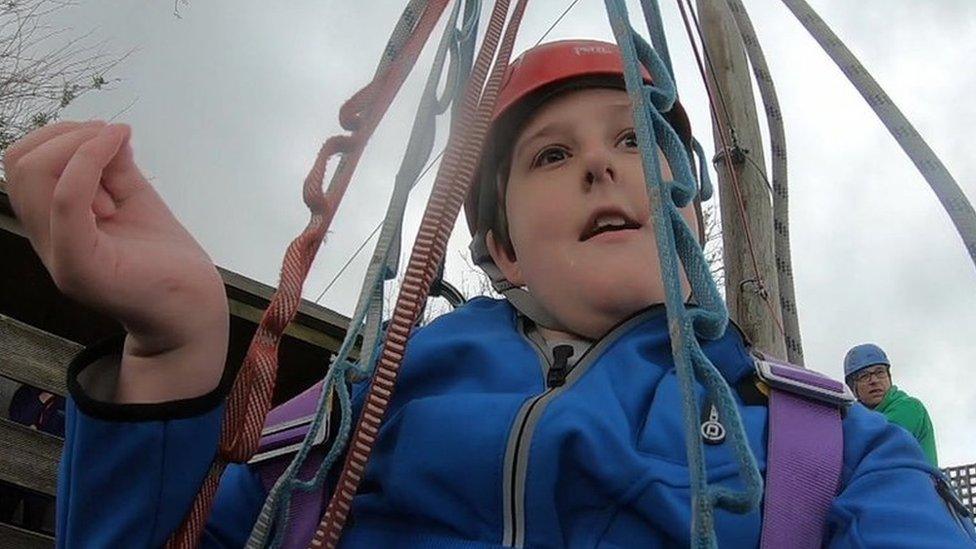
- Published3 September 2018
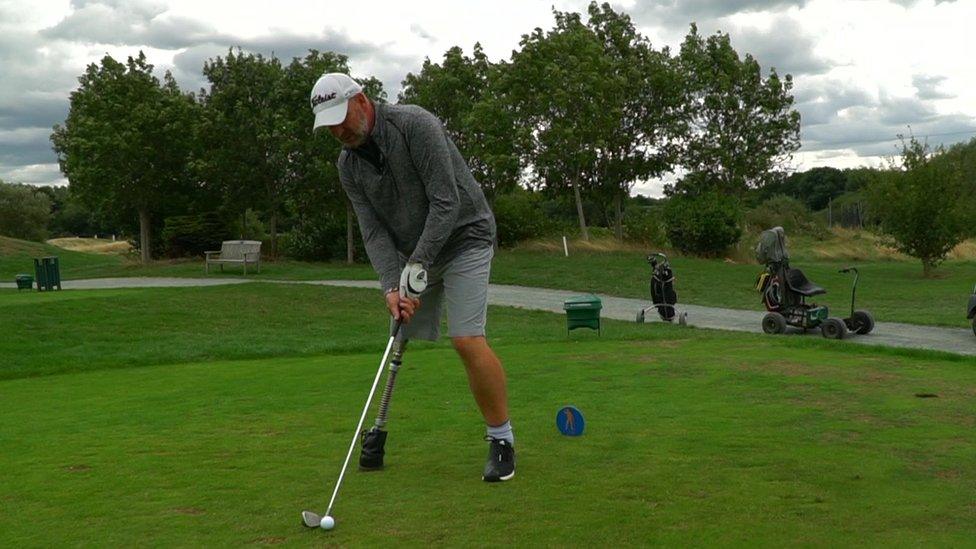
- Published24 January 2018

- Published22 November 2017

- Published7 August 2018
